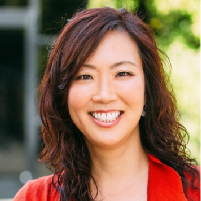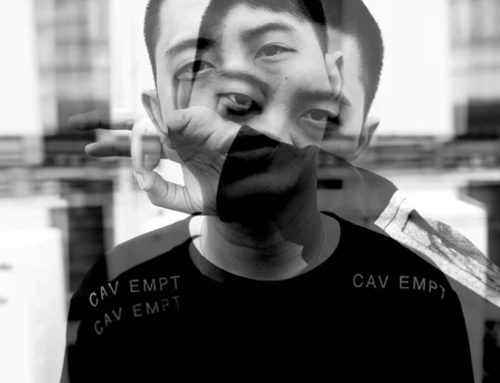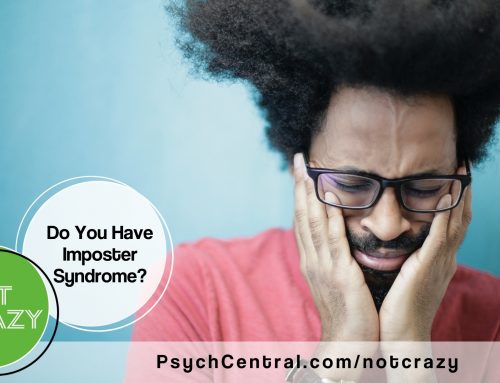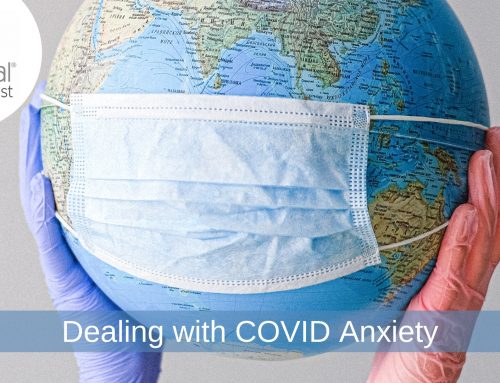In both Asian and Christian communities, there remains some stigma regarding mental illness. In today’s show, Dr. Esther Park, who is both Korean and Christian, breaks down these misconceptions and encourages people in these circles to seek professional help for their mental health problems. Click on the player below to listen now!
SUBSCRIBE & REVIEW
Guest information for ‘Mental Health Stigma’ Podcast Episode
 Dr. Park is a board-certified child, adolescent and adult psychiatrist. Her undergraduate studies were completed at UCLA. She trained to be a physician at Kirksville College of Osteopathic Medicine. During the first year of her family medicine residency training program, she realized her calling was really in the mental health field. Dr. Park completed her psychiatric training at the LAC/USC Medical Center and has more than seventeen years of outpatient clinical experience treating children and adults.
Dr. Park is a board-certified child, adolescent and adult psychiatrist. Her undergraduate studies were completed at UCLA. She trained to be a physician at Kirksville College of Osteopathic Medicine. During the first year of her family medicine residency training program, she realized her calling was really in the mental health field. Dr. Park completed her psychiatric training at the LAC/USC Medical Center and has more than seventeen years of outpatient clinical experience treating children and adults.
Computer Generated Transcript for ‘Mental Health Stigma’ Episode
Editor’s Note: Please be mindful that this transcript has been computer generated and therefore may contain inaccuracies and grammar errors. Thank you.
Announcer: You’re listening to the Psych Central Podcast, where guest experts in the field of psychology and mental health share thought-provoking information using plain, everyday language. Here’s your host, Gabe Howard.
Gabe Howard: Welcome to this week’s episode of The Psych Central Podcast. Calling into the show today, we have Dr. Esther Park, who is a board certified child, adolescent and adult psychiatrist. Dr. Park completed her psychiatric training at the LAC/USC Medical Center and has more than 17 years of outpatient clinical experience treating adults and children. Dr. Park, welcome to the show.
Dr. Esther Park: Oh, it’s such a pleasure. Thank you for inviting me.
Gabe Howard: Well, we are really excited to have you here because we want to talk about the stigma of mental health in the Christian and Asian communities. So let’s jump right in. Why is there stigma around mental health in many Christian circles?
Dr. Esther Park: This is an area where I’m very familiar. I grew up my father was a Presbyterian minister from Korea as a first generation Korean moving here to the United States. And I was born here. So I’m a US born Korean American. So I got to see just what it’s like to grow up in a church, actually, Korean church. I believe that the stigma comes from misconceptions, a lot of misconceptions about healing in general, general healing of physical problems and especially mental healing. So, for example, maybe 1700’s, right. Where severe mental illness such as schizophrenia, where they’re having hallucinations and bizarre behaviors that used to be looked upon as demon possessed. And so from those generations and centuries until now, it still has kind of trickled to this modern day of if you have a mental illness and you can’t, quote unquote, shake it off, that something’s wrong with you spiritually.
Gabe Howard: I’m reminded of the Salem witch trials, and in
Dr. Esther Park: Yes.
Gabe Howard: 2020, the majority of people believe that that was just an extreme overreaction based on so many factors, but fear being a primary one. And now here we are in 2020. And I recognize that we’re not burning anybody at the stake. But it’s interesting to me that we’re allowing sort of this misinformation or misconception and this fear of mental illness drive our thinking when the average person in 2020 completely understands that letting fear and misinformation drive our thinking all the way back in Salem was an overreach and an overreaction, it feels like the same thing just with less dire consequences. Except, of course, if you’re a person living with mental illness or mental health issues and you don’t get the treatment and support that you need, you know, death is a very real possibility.
Dr. Esther Park: Right, I totally agree, it’s just a different form now, it’s just more maybe acceptable form today of how people are being viewed or treated whenever they’re struggling, and then that causes people to not share their struggles.
Gabe Howard: Do you feel that the average Christian feels that they can’t seek help because it insults their faith, or is it deeper than that?
Dr. Esther Park: Not about insulting their own faith, it’s about like if I sought help and I find out that I really have a diagnosis or I’m really experiencing something real, then that’s going to prove that I am not a person of true faith or my faith is weaker than others. And they’re very fearful to discover that sometimes. So there’s a great deal of denial and a great deal of I can just beat this with my faith. All I have to do is pray, or all I have to do is go to more worship services. So I think those are the reasons why, rather than a direct insult to the faith professionally, I would say why there’s a stigma. There is such minimal knowledge, the ignorance about physiology and medical background and even psychology. Even the entire field of psychology, there is another misconception just based on the fear that that is not of God. And they think that psychologists or even the theorists of the past are not aligned with God and they just kind of alienate them or marginalize them as opposite of God or atheists. And so I found that very intriguing because I grew up even I think my own dad would talk about Freud or other famous theorists, not that they’re of the devil, but like they’re influenced maybe and did not trust psychology. And maybe people don’t even try to go to a psychologist for fear that, oh, they’re going to change me.
Dr. Esther Park: And if they change me, I’m not going to believe in God. I might be talking really extremely in terms of like what they were thinking. But deep down inside, there is so much fear in going to a psychologist. They don’t know that these are actual neurologically based struggles, for example, major depression, severe anxiety disorders, bipolar, schizophrenia. These are disorders of neurotransmitter imbalances. And they can be treated. On the other hand, on the spiritual level, I’m a firm believer that many have inaccurate understanding about what we call the gospel or the good news. They don’t know the message of the Bible. I think they misconstrue so many things and just pick and choose what they think is the doctrines and then apply it to certain things. For example, have you ever heard of the word legalism? Legalism is a term of based on the law. So, for example, there are laws of God or there’s these traditional laws interpreted as laws of God, and you must obey them. And that’s the only way to please God or get blessings. And therefore, if you don’t, you may get punished. If the mental health issue is considered as a punishment, then they may be experiencing, oh, I must be punished. This must be a consequence of a past wrongdoing. So it’s totally the misconception starts to really take over.
Gabe Howard: It really seems like there’s just a lot of misinformation. What we really have here is a biological brain based disorder that needs medical intervention, medical intervention that can be provided by, for example, Dr. Park. But we start to turn it into more than it is. And throughout history, we’ve had so many examples of this. But I guess my question is both as a doctor and as a Christian, what advice do you have for people who are struggling with this? Because we want people to get the care that they need. We want them to be able to move forward in their lives. And we certainly don’t want something like misinformation or fear to hold them back from leading their best life.
Dr. Esther Park: Absolutely, I just love how you mentioned about leading their best life, many of the talks that we give, whether it be at Christian communities or schools or other places, we emphasize that mental suffering is a blockage, an obstacle to reaching our greatest potentials. And in my opinion, as a Christian, I don’t think God intends for suffering to persist and continue, and he never intends for it to block someone to reach their greatest potential. So my encouragement usually is if there is pain, just like if you have a persistent piercing headache, you wouldn’t just sit on that. You actually would ask the question, why am I having this pain? I don’t like this pain, it’s bothering me. Maybe I should go seek help in the same way when there is an emotional pain or a conflict that is piercing the function of their life, that questions will be asked. They will ask it, why am I having this? But then it stops there. And so my encouragement is to really learn that there is a biological basis. And of course there are psychological issues and sociological issues. And I always add to this community there is a spiritual issue, but you have to address all of them. You can’t just label it as it’s a spiritual issue and I have to pray it off.
Gabe Howard: Let’s take a moment to talk about the role of prayer in recovery, because you’re certainly not saying that prayer has no place, you’re just saying that it won’t work in isolation, much like in many physical illnesses. For example, if you break your leg, nobody is shaming you for praying. They’re just saying that you should also go to a doctor, have your leg set and be put in a cast. Is that analogous to what we’re talking about in mental health as well?
Dr. Esther Park: Yes, I agree, definitely. I’m not saying you don’t need prayer or don’t pray when I think about what God is looking at, He’s like, OK, you want my help? Well, I’m going to give you help. And the help is going to be through someone I send to help you. I feel that prayer has so many roles in the Christian life. So in our everyday struggles, such as physical, mental illnesses, it’s natural to ask God, please help me. And I strongly believe that he has ordained and given gifts and talents to people who can bring that healing, who can bring the medical healing part, and he’ll do the rest.
Gabe Howard: And we’ll be right back after these messages.
Sponsor Message: This episode is sponsored by BetterHelp.com. Secure, convenient, and affordable online counseling. Our counselors are licensed, accredited professionals. Anything you share is confidential. Schedule secure video or phone sessions, plus chat and text with your therapist whenever you feel it’s needed. A month of online therapy often costs less than a single traditional face to face session. Go to BetterHelp.com/PsychCentral and experience seven days of free therapy to see if online counseling is right for you. BetterHelp.com/PsychCentral.
Gabe Howard: We’re back discussing mental illness and the Asian and Christian communities with Dr. Esther Park. One of the things that you talk about being Asian-American is that it’s not just the Christian culture that is struggling with accepting mental health issues, but there’s also cultural issues inside the Asian-American community where, as you put it, they don’t understand or accept mental health issues from a cultural basis that has nothing to do with Christianity. It’s just sort of the culture. These things have a lot in common, right. It’s the same sort of mechanism. Can you speak to that? Because you speak to it very well.
Dr. Esther Park: Yes, the Asian circles have something in common, in my opinion, which is a cultural aspect of not expressing your emotions, feelings and conflicts and struggles, not that they’ll deny that they have those, but if they express that they’re struggling, then it may be a sign of weakness. And then that can lead to the possibility of bringing shame upon the family. In the Asian circles, where collectivism is more dominant than the individualistic viewpoint, I have to maintain the respect of the family. So, for example, if I have a severe mental illness which causes behavioral changes that would be looked upon by others with their eyebrows raised like what’s going on there, then that could actually bring shame. And if I bring shame to the family, then I will devalue my family or I will ruin my family’s name. So I have to do my best to try to avoid the risk of attracting any disrespect or gossip from others outside. Therefore, I need to just buck up and figure this out on my own. It’s a really huge pressure to try to always look OK to look perfect, because if I don’t, then my family won’t and I can’t dishonor my parents that way. I would say for many Asian communities and countries this is what’s going on. And when it comes to illness, mental illness, even more than physical illness, it is kept inside and withdrawn and isolated.
Gabe Howard: Now, some folks may be thinking that this isn’t a Christian issue or a cultural issue, this is just a societal issue, that every culture has this issue accepting mental health or mental illness. Do you think that it’s worse in Christian communities? Do you think it’s the same? Do you think it’s the same mechanism? Do you think it’s a variation of a theme? Because there is an awful lot of discrimination and stigma surrounding mental illness and mental health issues. How does it differ when we have these extra cultural expectations involved?
Dr. Esther Park: I would say there are some overlap and then there are some separate factors for each, but I think the one overlap is, for example, if I confess openly that I am very much in pain, I’m struggling, I need help, like, for example, addictions. That’s something very, very difficult to confess in Bible circles that might prove I’m not a good child to my Asian family. I’ve disappointed my family or it proves I’m not a strong Christian and therefore I just have to live with this addiction and be by myself, just hide it from everyone else. So I would say that is something that describes an overlap regarding, for example, addictions.
Gabe Howard: Short term, what can be done to reduce resistance and to help people in these populations to be more willing to seek and obviously get help and be well?
Dr. Esther Park: For those who come to a center like ours, Oak Health Center, they’re already suffering greatly, they muster up enough courage to come to us. And so initially, the clinicians here, we try to provide what we call psycho education, which is just education regarding psychological factors and psychological illnesses. We talk about the disease state. We talk about what the standard of care of treatment is. We let them know what the past recovery rates have been for others. We tell them that you are not alone. This is not something new. This is something that many others experience. And we are familiar with them. And we talk about the risks and benefits to treatment, about how the benefits outweigh the risks. And slowly, many of them become encouraged because they experience hope and they experience reduction of their original stigmas and their thoughts. And then when they start trying the treatment and they experience some recovery and where their function is improved, not only improve but to the next level where they reach the next level of their potential, they become naturally excited and that will naturally let them share with others. And another way we are trying to reduce that resistance is we’re doing presentations and talks and we bring the awareness to them by speaking on these topics and talking about the specific questions that we know that they have and the misconceptions that they have. I feel that that has helped because after those talks, some who may never have called to get an evaluation, they would call.
Gabe Howard: That’s incredible. Now, let’s talk about long term. Long term, what will it take to remove this stigma entirely in Christian circles? Is it even possible to do so?
Dr. Esther Park: I think it’s possible. In the Christian circles long term, in order to bring more awareness and raise an acceptance, it has to be from the leaders. The leaders probably learn from their predecessors regarding these misconceptions and therefore unintentionally. Maybe they keep that and they continue that. I feel that we need to help leaders to be educated first and reduce their own misconceptions and ignorances so that they will feel comfortable to teach and preach to their congregations in their ministries about these issues because if they bring it up at the front, then there will be a realization that, oh, this is not abnormal or crazy. We’re all going through this and I should pay attention to it. Also, I feel that if they have that acknowledgment and awareness that they are not professionals, but that they are kind of like middle person counselors because so many would go to them with their struggles. Many pastors and leaders, they do their best, they counsel and they pray. But there’s a certain level of illness where they need to be referred for professional care. So that kind of education, awareness and training would be very necessary.
Gabe Howard: Obviously, thank you so much for your candor and can you give us some example of where these stigmas were overcome in the Christian community? Because that gives us hope, right?
Dr. Esther Park: Oh, yes, actually, myself, for example, I began as a family medicine resident and I had this dream of being a doctor and maybe I’ll travel the world and I will be a medical missionary and heal everybody. So I began that way and I realized I utterly disliked the residency. And I had a crisis during that time of my career of, oh, my goodness, I wasn’t supposed to be a doctor. What am I supposed to do now? But during that year, I realized there are other residencies and other specialties and maybe I should consider them. So when I switched to psychiatry, I was somewhat hesitant because I did not know what my parents would say, especially my dad being an Asian Christian pastor. And I was so surprised and encouraged because when I told them about it, I said, Hey, Dad, I’m not going to be a family practice doctor anymore. I’m going to go into psychiatry. And he was actually so excited and he said, of course, you need to be a mental doctor. I’m like, what are you talking about? I thought maybe you wouldn’t think that’s even a real doctor. And his response was, what do you mean? Psychology and psychiatry is the closest to the soul and so many are struggling. You need to help them with their emotional mental disturbances so that they can maybe eventually meet God that way. So that was his response.
Gabe Howard: Thank you so much for sharing those and please thank your father for us, because I know that especially in mental health circles, sometimes our families aren’t willing to let us share how our families have evolved, because, as you’ve said, we just try to keep it all internalized to not and I’m making air quotes here embarrass the family. And I think it’s healthy to get it out there and have difficult conversations surrounding mental illness and mental health issues. And I applaud you and your family and all of the work that is being done. It will absolutely save lives.
Dr. Esther Park: Thank you so much.
Gabe Howard: Oh, you’re very welcome. Where can folks find you on the Web?
Dr. Esther Park: Our clinic website is Oak.Care. W W W dot O A K dot C A R E, and there you will find the list of our locations and what services we provide. And we’re very proud to report that we are direct providers for Aetna and Anthem Blue Cross, which is very important to a lot of people. And may I add one more website? Especially for those who are in the Christian community and struggling, they’re welcome to visit OakHealthFoundation.org. Oak Health Foundation, all in one word dot org, where there they can read about what we do and perhaps after reading that, find encouragement to try to seek help.
Gabe Howard: Well, Dr. Park, thank you so much for being here and for sharing both from a professional level and from a personal one, we really, really appreciate it.
Dr. Esther Park: So glad to be here. Thank you so much, Gabe.
Gabe Howard: Well, you’re very welcome, thank you so much and listen up, listeners, here’s what we need you to do. Please, wherever you downloaded this podcast, please subscribe. That way you don’t miss any great episodes. Share us on social media and use your words. Tell people why they should listen as well. And remember, you can get one week of free, convenient, affordable, private online counseling any time anywhere, simply by visiting BetterHelp.com/PsychCentral. We will see everybody next week.
Announcer: You’ve been listening to The Psych Central Podcast. Want your audience to be wowed at your next event? Feature an appearance and LIVE RECORDING of the Psych Central Podcast right from your stage! For more details, or to book an event, please email us at show@psychcentral.com. Previous episodes can be found at PsychCentral.com/Show or on your favorite podcast player. Psych Central is the internet’s oldest and largest independent mental health website run by mental health professionals. Overseen by Dr. John Grohol, Psych Central offers trusted resources and quizzes to help answer your questions about mental health, personality, psychotherapy, and more. Please visit us today at PsychCentral.com. To learn more about our host, Gabe Howard, please visit his website at gabehoward.com. Thank you for listening and please share with your friends, family, and followers.
This article originally appeared on Psych Central as Podcast: Stigma in Christian and Asian Communities.













